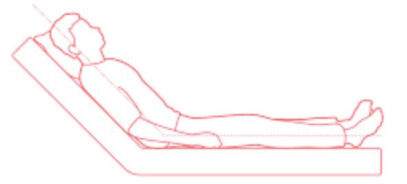Explore the insidious world of Vitamin B12 deficiency, its symptoms, causes, and treatments.
In the bustling realm of nutritional health, Vitamin B12 often takes a backseat, overshadowed by more popular counterparts like Vitamin C or D. However, its importance is undeniable, and a deficiency can wreak havoc on our well-being.
Understanding Vitamin B12: A Vital Nutrient
Vitamin B12, also known as cobalamin, plays a pivotal role in various bodily functions. From supporting the production of red blood cells to maintaining a healthy nervous system, this water-soluble vitamin is essential for overall well-being. Unfortunately, the body cannot produce Vitamin B12 on its own, making it imperative to obtain an adequate amount through dietary sources.
The Red Flags: Recognizing Symptoms of Vitamin B12 Deficiency

Vitamin B12 deficiency is notorious for its subtle onset and diverse range of symptoms. From fatigue and weakness to neurological issues such as numbness and tingling, these signs can be easily overlooked or attributed to other health issues. This section delves into the red flags that may indicate a deficiency, empowering readers to recognize and address potential problems promptly.
Unmasking the Culprits: Causes of Vitamin B12 Deficiency
Understanding the causes of Vitamin B12 deficiency is crucial for prevention and treatment. From dietary factors to underlying medical conditions that hinder absorption, this section explores the various culprits behind the deficiency. Additionally, we discuss lifestyle choices and demographic factors that may increase the risk of developing a deficiency.
Who’s at Risk? Demographics and Vulnerabilities
Certain demographic groups are more susceptible to Vitamin B12 deficiency. In this section, we explore factors such as age, dietary choices, and medical conditions that elevate the risk. By identifying vulnerable populations, readers can take proactive steps to ensure they maintain optimal Vitamin B12 levels.
Diagnosing the Stealthy Culprit: Testing for Vitamin B12 Deficiency
Getting an accurate diagnosis is the first step towards effective treatment. This section outlines the different diagnostic methods used to identify Vitamin B12 deficiency, from blood tests measuring B12 levels to assessing the presence of related markers. Understanding the diagnostic process empowers individuals to work collaboratively with healthcare professionals for a precise diagnosis.
Fueling Up: Dietary Sources of Vitamin B12
Prevention is the best defense against B12 , and a well-balanced diet is key. This section provides a detailed guide to dietary sources rich in Vitamin B12, from animal products like meat and dairy to fortified plant-based options. Exploring these dietary choices ensures readers can make informed decisions to support their nutritional needs.
Treatment Options: Replenishing Vitamin B12 Levels

For those diagnosed with B12 , effective treatment is crucial. This section explores various treatment options, including oral supplements, injections, and dietary adjustments. Understanding these options allows individuals to work with their healthcare providers to develop a personalized and effective treatment plan.
Preventing the Stealthy Intruder: Tips for Vitamin B12 Maintenance
Prevention is the ultimate goal, and maintaining adequate Vitamin B12 levels is a lifelong endeavor. This section provides practical tips for preventing deficiency, including dietary recommendations, lifestyle adjustments, and ongoing monitoring. Empowering readers with actionable steps, this segment serves as a guide for long-term health.
Empowering Yourself Against Vitamin B12 Deficiency
In the intricate tapestry of health, Vitamin B12 plays a crucial role that should not be underestimated. By understanding the symptoms, causes, and treatment options associated with B12 , individuals can take proactive steps to protect their well-being. This comprehensive guide equips readers with the knowledge needed to navigate the complex landscape of nutritional health, ensuring they can thwart the stealthy intruder that is Vitamin B12 deficiency.



